

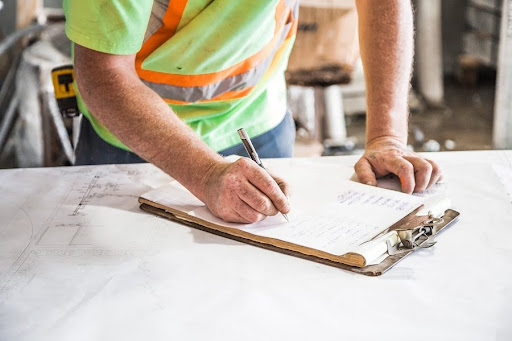
Starting a concrete construction project can feel daunting when you are unsure which questions to ask before the first pour.
Skipping this step often results in budget overruns, unnecessary delays, or even safety concerns that become costly to address later. By taking time to ask the right questions, you can plan with confidence and avoid common pitfalls.
Whether you are preparing a residential slab, driveway, retaining wall, or commercial build, these 12 essential questions will help you make informed choices from the outset.
Every project begins with a clear purpose. Knowing whether the concrete is for a driveway, slab, retaining wall, or commercial structure shapes every decision that follows. Without clarity, important details like design and strength requirements may be overlooked.
Different uses demand different specifications. A driveway supporting vehicles requires a thicker slab than a garden path. A commercial foundation will often need stronger reinforcement compared to a residential patio. Aligning purpose with design ensures durability and performance.
Contractors also rely on this information to recommend the right materials. Defining the goal early saves time, prevents errors, and ensures the finished structure does exactly what you need.
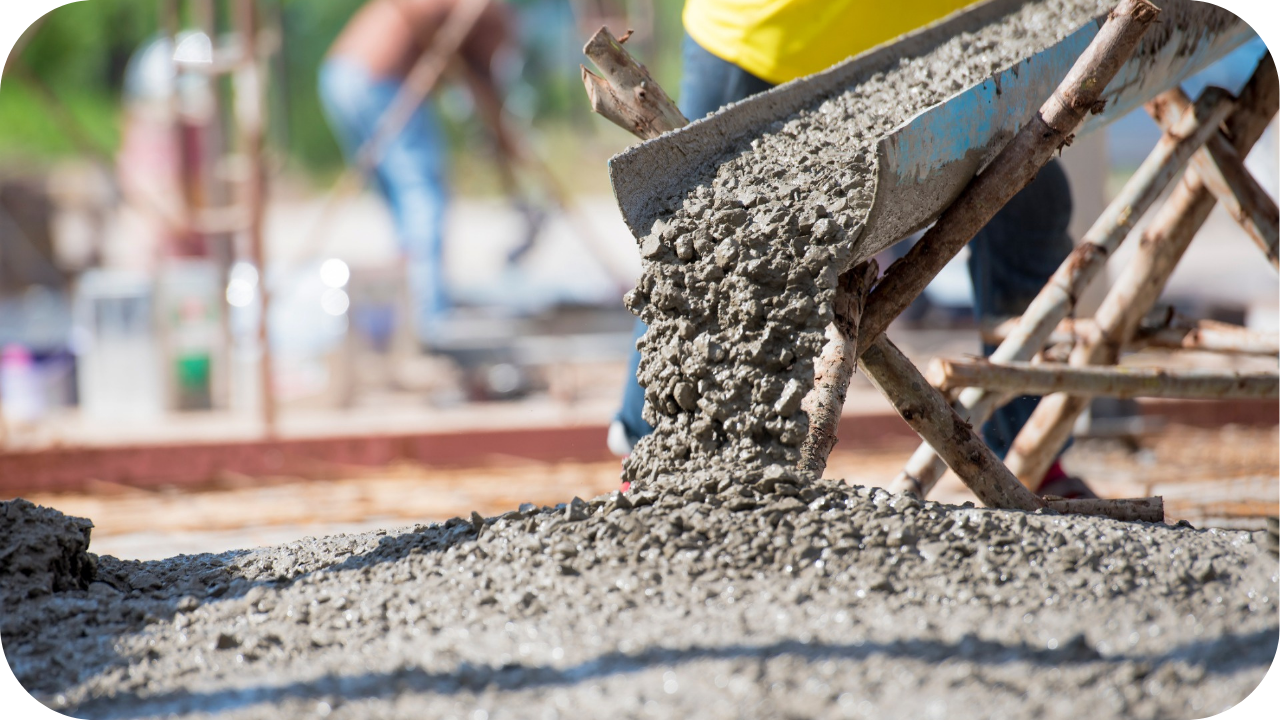
The concrete you select directly affects strength, durability, and appearance. A simple garden path may suit a standard mix, but structural slabs, driveways, or commercial floors often require high-performance concrete for added resilience and reduced cracking.
Reinforced or post-tensioned concrete may also be necessary where additional load-bearing is needed. Climate is another factor to weigh carefully. Exposed aggregate is ideal outdoors for slip resistance, while polished or coloured concrete suits interiors that prioritise design and visual impact.
Asking these questions early allows you to balance cost, performance, and style. The right choice ensures reliable, long-lasting, and attractive results.
Before any concrete is poured, local building regulations must be understood. These rules are designed to guarantee safety, structural integrity, and compliance with council requirements. Overlooking them can cause fines, costly rework, or project delays that disrupt your timeline.
In Melbourne, permits are often required for new driveways, foundations, or commercial builds. Councils may also mandate inspections during key stages to confirm that work aligns with Australian standards. Following these steps ensures long-term performance.
Asking your contractor how they handle compliance provides peace of mind. It confirms they are prepared, experienced, and capable of navigating the approval process effectively.
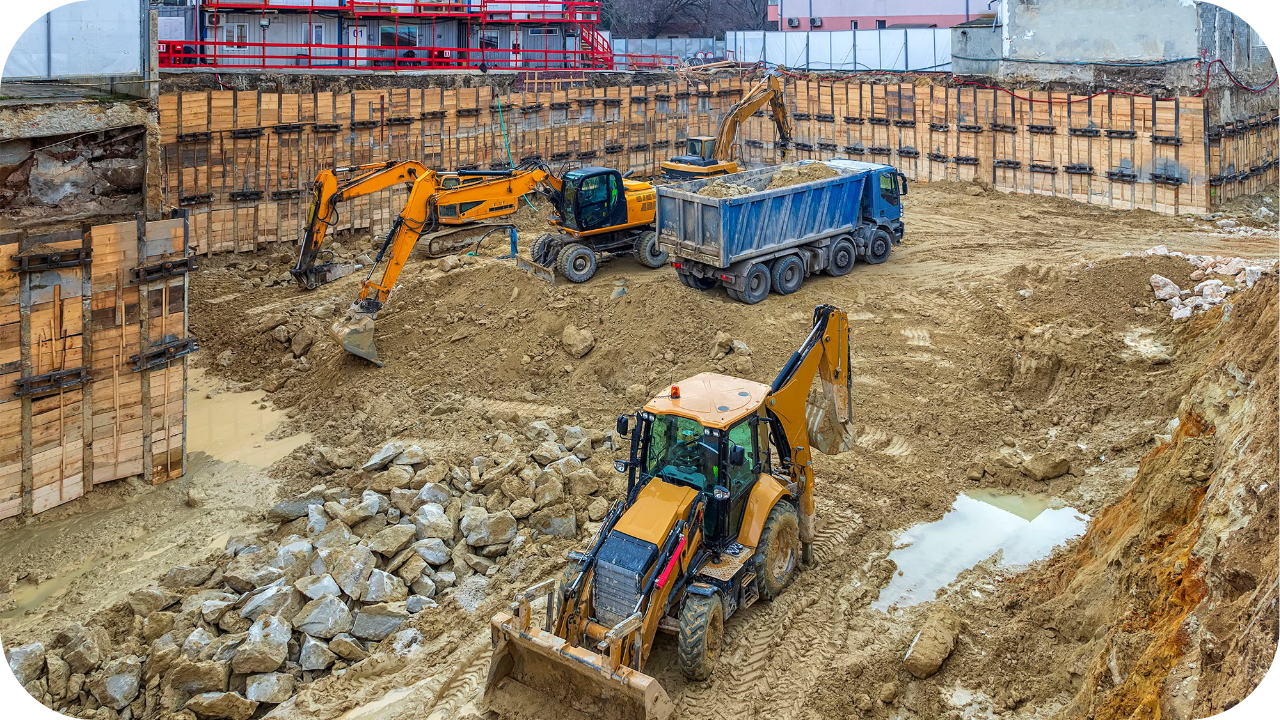
Site conditions play a big role in how successful a concrete project will be. Soil type, drainage, and slope all affect the stability and longevity of the structure. Ignoring these factors often leads to cracking, water damage, or even structural failure.
A sloping block may require benching or retaining to create a level base. Rocky ground needs extra preparation, while sites with a high water table demand specialised solutions. Each condition influences both design and cost.
Asking your contractor about the site assessment ensures issues are managed before work begins. Proper preparation saves money, prevents delays, and guarantees a stronger finish.
Concrete construction rarely follows a simple schedule, so knowing the timeline is vital. Clear deadlines help you plan around other trades and avoid unnecessary delays. Without this, projects can quickly stretch longer than expected and increase overall costs.
Curing times often take longer than many people realise. Weather can also interfere, as heavy rain or extreme heat may push back pouring or finishing. Factoring in these possibilities gives a more realistic picture of completion.
By asking about scheduling early, you set clear expectations with your contractor. This allows for better planning, reduces stress, and ensures progress stays on track.
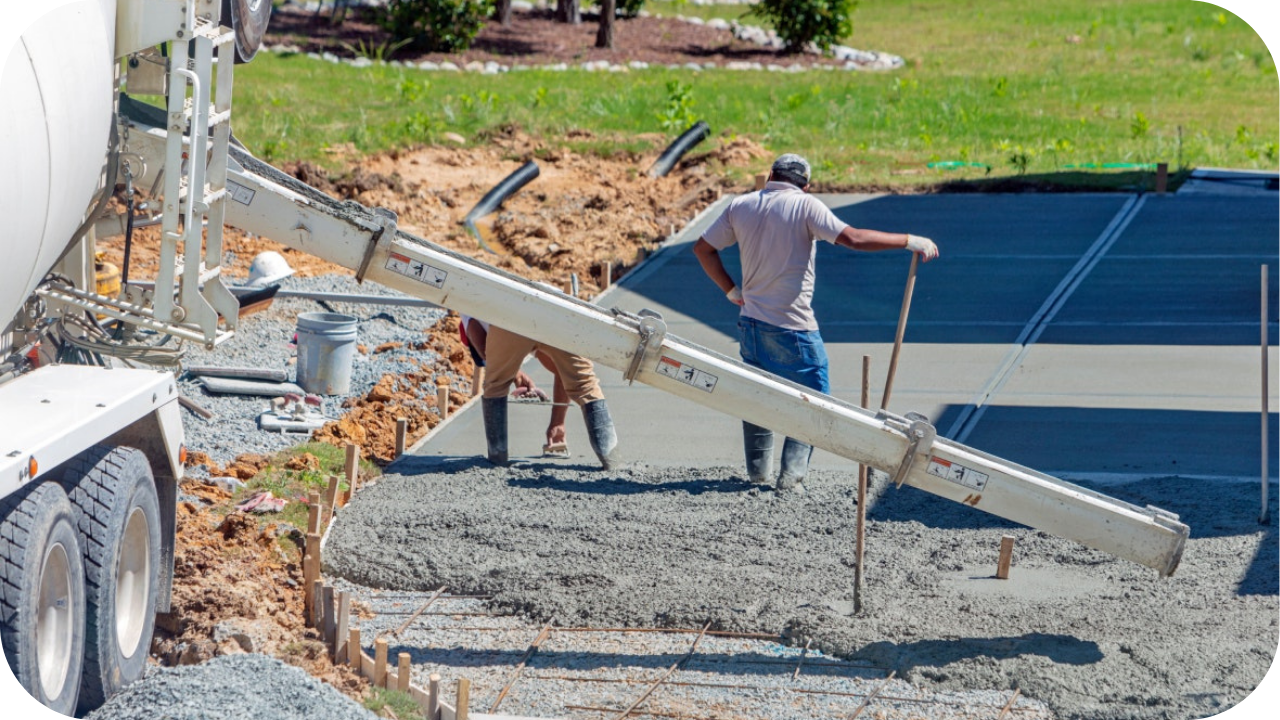
Cost is often the first concern in any concrete project, but it’s important to understand more than just the bottom line. A clear breakdown of materials, labour, equipment, and finishes prevents surprises later. Asking early ensures transparency and builds trust.
Quotes can vary widely depending on reinforcement methods, site preparation, and design options. Some contractors include sealing or finishing, while others list these as extras. Without details, hidden fees may appear during construction.
Requesting a written, itemised quote protects your budget. It also makes comparing contractors easier, as you know exactly what is included and what may add to the cost.
The experience of your contractor can make or break a project. A skilled professional understands how to handle different site conditions, concrete types, and reinforcement methods. Inexperienced hands, however, may overlook crucial details that affect durability.
Checking past projects gives valuable insight into their ability. A contractor who has successfully delivered similar slabs, driveways, or commercial builds is more likely to meet expectations. Reviews and references also reveal reliability and professionalism.
It’s also wise to ask about licences, insurance, and certifications. These confirm they meet industry standards and provide protection if issues arise during construction.
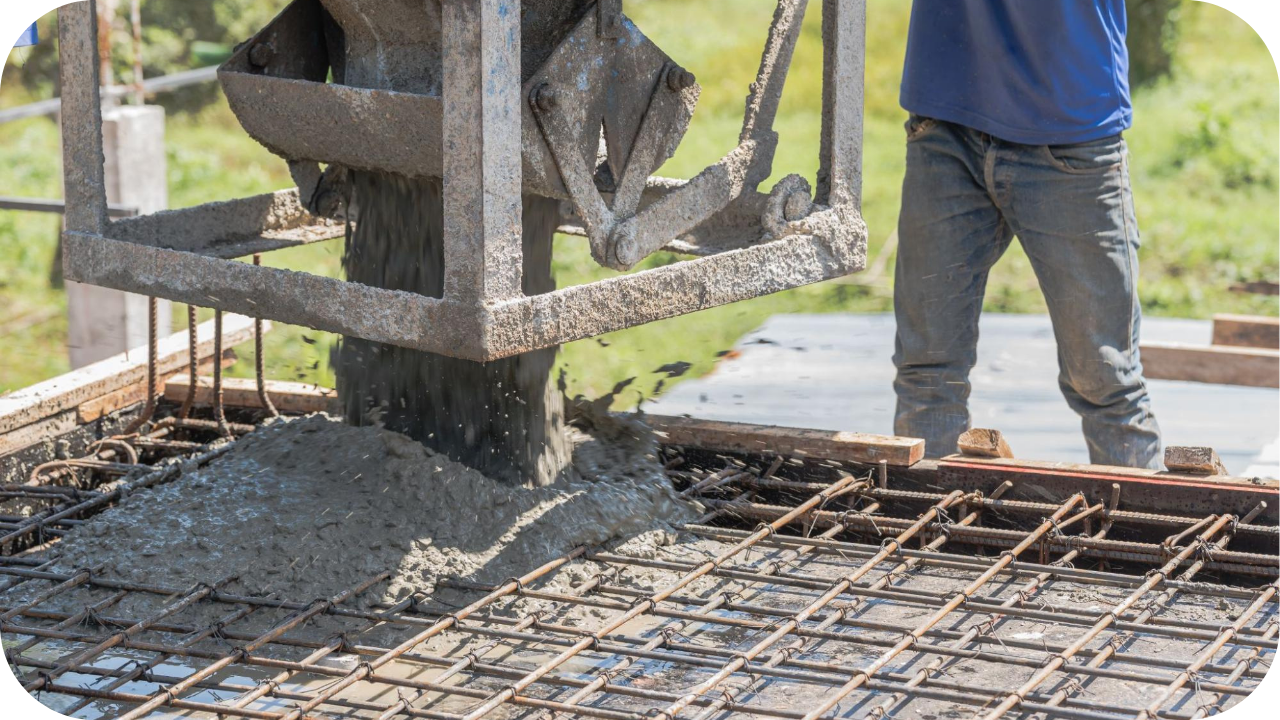
Reinforcement gives concrete strength to withstand heavy loads and daily wear. Without it, even well-mixed concrete is vulnerable to cracking or shifting over time. Knowing which method will be used helps you understand how durable the finished structure will be.
Steel mesh is common for smaller projects like driveways, while steel bars provide extra strength for larger slabs or retaining walls. Post-tensioning is often used in commercial settings where high loads and long spans are involved. Each option has its place.
By asking about reinforcement, you ensure the method matches the project’s demands. This decision directly affects lifespan and performance.
Concrete is highly affected by weather, and overlooking climate conditions can lead to problems. Pouring in extreme heat may cause cracks from rapid drying, while heavy rain can weaken the surface and ruin the finish. Timing is everything for a lasting result.
Seasonal changes in Melbourne also influence planning. Winter conditions can slow curing, while hot summers require extra measures to retain moisture. Contractors must adapt methods to suit the forecast and local climate.
By asking how weather will be managed, you reduce risks. A well-prepared contractor adjusts techniques to ensure strength and durability regardless of the season.

Concrete is durable, but it still benefits from regular care. Without maintenance, surfaces may stain, crack, or lose their protective layer, shortening their lifespan. Understanding upkeep helps you protect your investment over time.
Sealing is one of the most effective ways to extend durability. It prevents water damage, reduces staining, and keeps finishes looking fresh. Cleaning with mild solutions and checking for small cracks also makes a big difference in preserving appearance and strength.
Asking about maintenance ensures you know what to expect once the project is complete. Proper care keeps concrete functional, attractive, and long-lasting.
Concrete doesn’t need to look plain or industrial. Today, there are many finishes that transform surfaces into attractive features. Asking about design choices ensures the final result matches both function and style.
Polished concrete works beautifully indoors, giving a modern, clean look. Exposed aggregate adds texture and slip resistance, making it popular for driveways and pool areas. Coloured or stamped finishes provide variety for patios, pathways, and decorative spaces. Each option creates a different effect.
By exploring finishes early, you balance durability with aesthetics. This question also helps set realistic expectations about cost, upkeep, and long-term appearance.
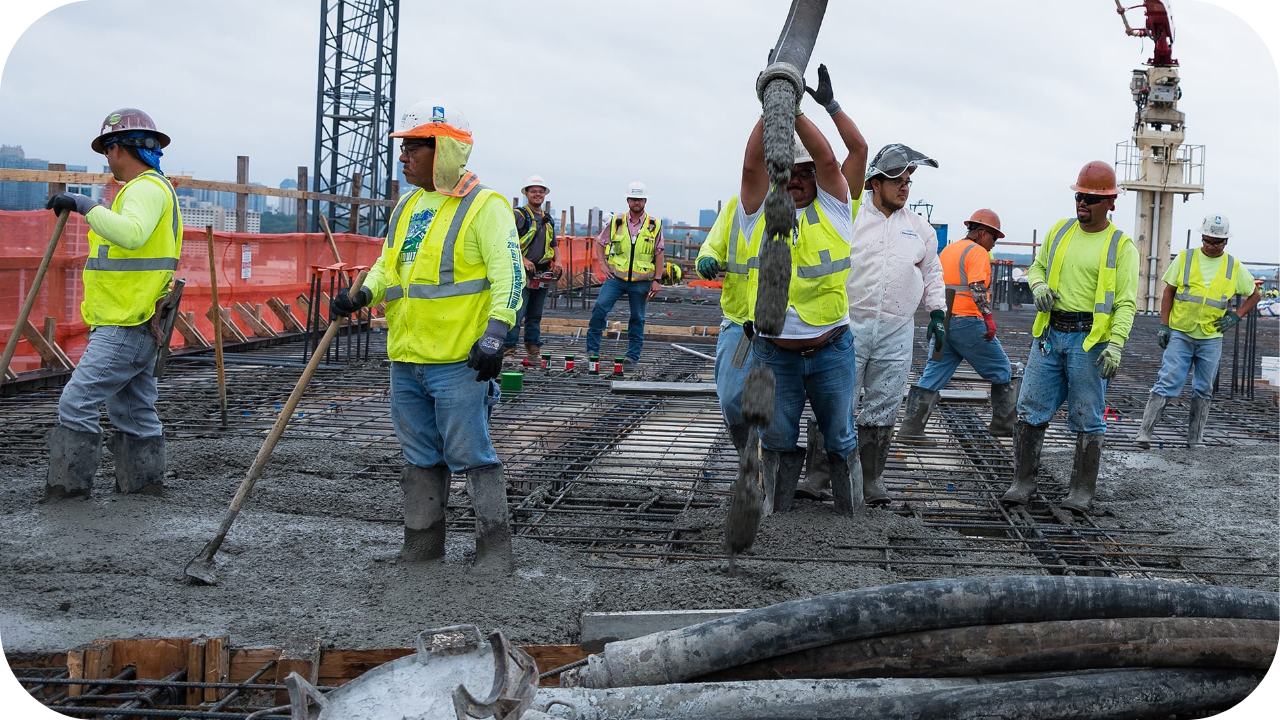
Concrete construction sites carry risks, and safety should always be a priority. Asking about safety measures protects workers, nearby residents, and your property. It also shows whether your contractor takes responsibility seriously.
Heavy equipment, wet concrete, and reinforcement materials all present hazards if not handled correctly. A professional team follows clear protocols, from protective gear to secure site access. Safe practices reduce accidents and keep projects moving smoothly.
Confirming that your contractor is insured and compliant with regulations offers further reassurance. When safety is managed well, you can focus on progress without worrying about unnecessary risks.
Before beginning your concrete project, it’s important to move forward with clarity. These next steps will help you stay organised, avoid risks, and ensure lasting results.
Great projects don’t just happen; they’re shaped by the questions you ask at the start. When clarity guides the planning stage, delays shrink, budgets stay steady, and stress takes a back seat.
Urban Pour combines expertise, precision, and trust to deliver concrete results that stand the test of time. Reach out today for tailored advice, transparent pricing, and a service that lays down more than concrete; laying the foundation for your project’s success.

Safe concrete pours begin with strong, well-designed formwork. This article breaks down essential formwork rules that keep structures stable and reduce the risk of failures.
See more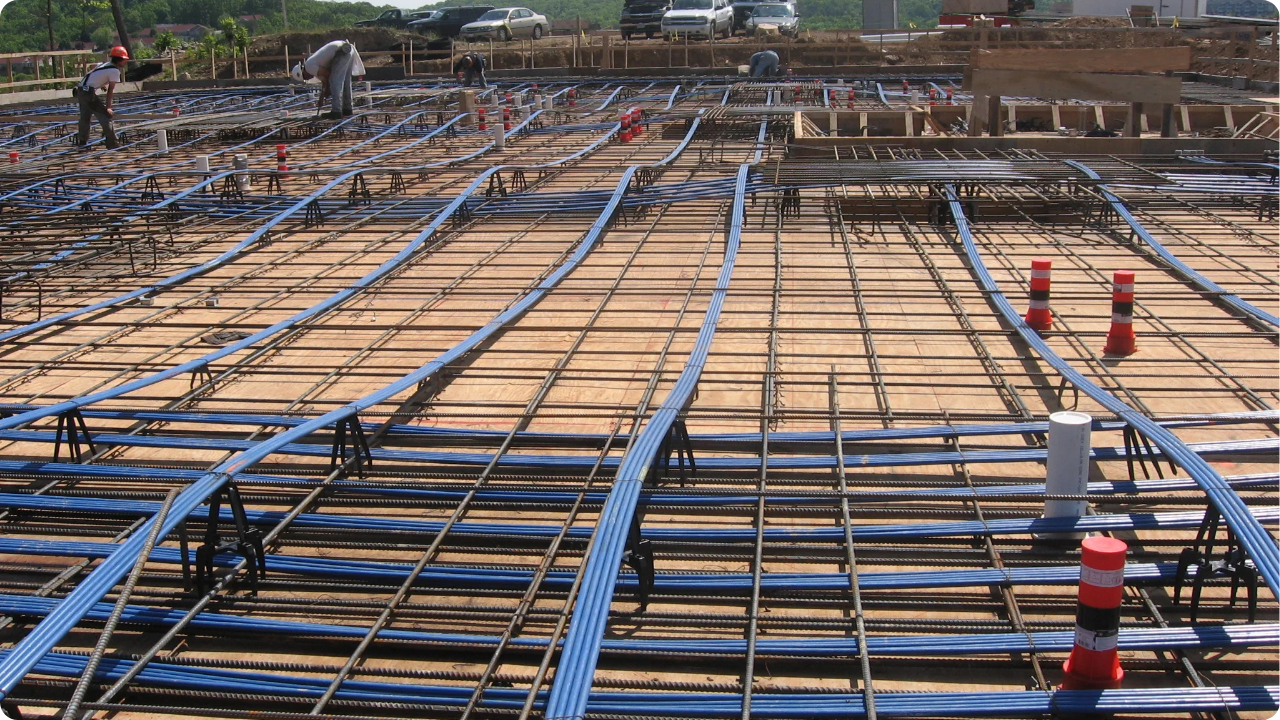
Poor post-tensioning can lead to cracking, deflection, and long-term structural issues. This article outlines common mistakes and shows how to avoid them for safer concrete performance.
See more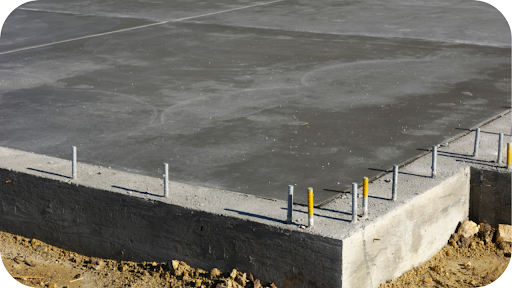
Choosing the right concrete slab thickness protects your project from cracks, movement, and costly repairs. Understand key factors like soil, loads, and engineering to build with confidence.
See more